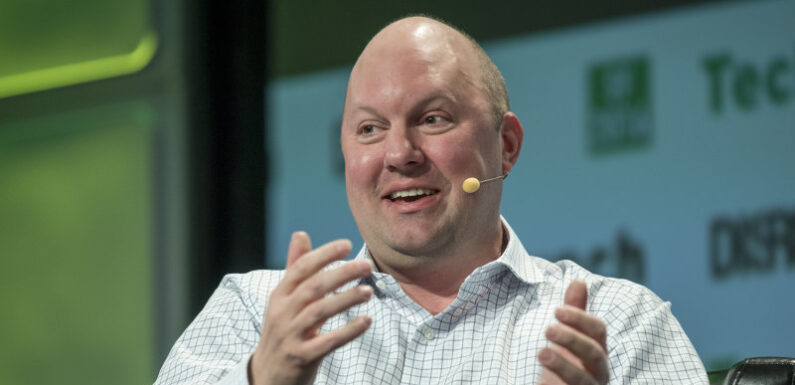
Save articles for later
Add articles to your saved list and come back to them any time.
Just when you thought Silicon Valley couldn’t get any more detached from reality, in comes billionaire venture capitalist Marc Andreessen.
A proponent of a new set of ideas dubbed “effective accelerationism”, Andreessen has used a 5000-word Techno-Optimist Manifesto to argue that technology is the panacea to all of society’s major problems.
Venture capitalist Marc Andreessen.Credit: Bloomberg
The belief is centred around the idea that the development of technology, particularly of artificial intelligence, should be not just unrestrained but accelerated for the good of mankind.
“We believe in the romance of technology, of industry. The eros of the train, the car, the electric light, the skyscraper. And the microchip, the neural network, the rocket, the split atom,” Andreessen writes. “We are not victims, we are conquerors.”
Andreessen and other Silicon Valley heavyweights including Y Combinator co-founder Garry Tan have signalled their commitment to the cause by adding the “e/acc” tag to their profiles on X (formerly Twitter), in what’s quickly looking like some form of a new techno religion – or even a cult.
Hype around Theranos made Elizabeth Holmes one of the world’s youngest self-made billionaires.
It’d be amusing if there wasn’t so much at stake.
For all their progress, Silicon Valley’s entrepreneurs – and those who fund them – have proven time and time again that they can’t be trusted to let unfettered “innovation” determine society’s future.
Take Theranos and its now-imprisoned founder Elizabeth Holmes. Holmes’ blood testing technology promised to revolutionise the medical world, offering a new way to test blood using just a droplet taken from a patient’s fingerprint.
Thanks to a sceptical press – and a subsequent FDA investigation – the technology was found to be a total sham, but only after investors had poured millions into the start-up and made Holmes one of the world’s youngest self-made billionaires.
The crypto industry is another plain example of what happens when hype and bluster overtake real utility.
Bitcoin alone is estimated to consume more energy per year than many countries – all for the sake of a made-up currency – and the unravelling of disgraced FTX founder Sam Bankman-Fried has laid bare an industry full of hucksters and empty promises.
Many crypto start-ups, like much of Silicon Valley, merely offer products in search of a solution.
We’ve likely left it too late for effective regulation of social media and its opaque algorithms. For years, platforms like Facebook have hoovered up massive amounts of personal data – in some cases without consent – while keeping users essentially addicted, a process that some have likened to nicotine or drug addiction.
Social media has divided us, and often brought out the worst in us, and regulators are more than a decade behind in their feeble attempts to rein it in.
The Silicon Valley way of building first and asking questions later has brought with it undeniable technical progress, but also wreaked significant societal damage.
Questions around how we should best regulate artificial intelligence, in Australia and globally, are fair questions that deserve thorough examination. We’re already beginning to feel the wide-reaching consequences of AI’s rise, including challenges around data privacy, job displacement and in-built bias.
To merely dismiss those concerns as the enemy of progress, as Andreessen does in his manifesto, is irresponsible and ultimately dangerous.
Thankfully, Australia’s entrepreneurs and venture capitalists have largely stayed away from the excesses and hyperbole perpetrated by their counterparts in the US.
We need to handle innovations like AI with thoughtful regulations and guardrails – both from governments and the technology industry itself – to avoid the myriad mistakes Silicon Valley has already made.
David Swan is Technology Editor for The Age and Sydney Morning Herald.
Get news and reviews on technology, gadgets and gaming in our Technology newsletter every Friday. Sign up here.
Most Viewed in Technology
From our partners
Source: Read Full Article

